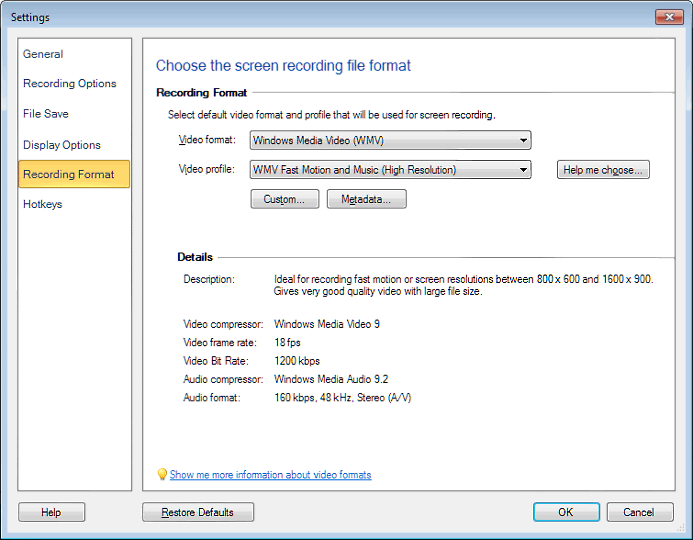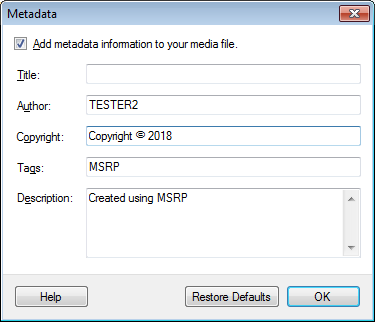Selecting a Screen Recording File Format
File format refers to the Video Format and Video Profile that is selected for storing your screen recordings. My Screen Recorder can store the recordings in two file formats: WMV or AVI. By default, recordings are stored as Windows Media Video (WMV) files. This format gives smaller file sizes for any given quality setting than AVI. Generally, we recommend using AVI files only if you plan to edit or publish the recordings using another program which does not support WMV.
To change the recording format, click Tools >> Settings >> Recording Format.

Use the Video Format dropdown list to pick either WMV or AVI.
For both formats, you can pick a Video Profile. Each profile balances file size against video and audio quality. The default is WMV Motion and Music (High Resolution). Recordings made with this Profile are usually indistinguishable from the original screen. If file size is critical you can lower the quality, and if you need extremely high quality with very high image sizes and screen resolutions, you can increase it. Note that a lower-quality profile is likely to work well if you are recording only a small region, because there is less information to save.
Note that using very high quality profiles may cause problems on slower PCs, because recording high quality video and audio can increase the load on the computer's CPU and RAM.
Click on Help Me Choose, if you are not sure about the profile to select for your recording. In case, none of the supplied profiles suit your needs, click Custom. For WMV, AVI and WMA formats, you can create one Custom Profile, which has the characteristics you choose.
Metadata
You can add Metadata to WMV and WMA files. Metadata is additional information about the recording that is visible in the player when the file is played back. To add metadata, click the Metadata button. My Screen Recorder supports the following metadata items:

-
Title: Select a title for the recording.
-
Author: The name of the person recording the video.
-
Copyright: The copyright owner, usually a company or the person recording.
-
Tags: Video tags are useful when someone is searching for a video file. For instance, if you tag recordings used on your web site with "website", you can use Windows Search to quickly locate them all.
-
Description: A brief overview of the purpose or content of the recording.
You can use one, some, or all the metadata options. You do not need to select all.
